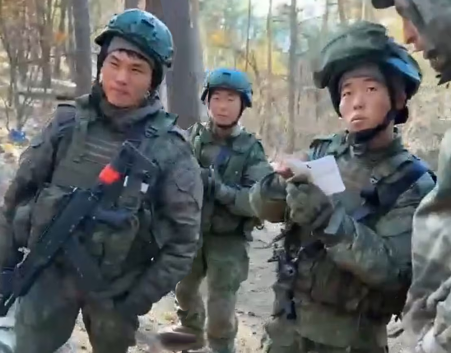Editor’s note: This is the latest in Kyiv Post’s Sanctions Busting series, a look into how Russia evades sanctions to wage its war against Ukraine.
The US and Europe have levied over 20,000 sanctions against Russia since it launched its full-scale invasion of Ukraine – but several major players in the top three industries have found ways of sidestepping international sanctions meant to limit Russia’s trade partners and national growth.
JOIN US ON TELEGRAM
Follow our coverage of the war on the @Kyivpost_official.
The Kremlin funds its invasion of Ukraine and other wars almost completely through taxes gleaned from three major economic sectors: the oil, gas, and iron ore and steel sectors. In 2023, the oil and gas industries alone accounted for an estimated 30-50% of total federal budget revenues over the past decade, according to the Oxford Institute for Energy Studies.
Although Russia’s economy has taken a hit over the last three years due to increased military expenditures, with some experts estimating the country’s real inflation rate to be about 27%, neither the cost of the war nor the trade loss due to the sanctions has successfully restricted the country’s economy enough to alter the Kremlin’s warmongering abroad. The sanctions’ lack of effectiveness has allowed President Vladimir Putin to continue leveraging state profits to remain in power and fight in Ukraine.
Germany: A Haven for Sanction Dodgers
As one of Russia’s largest European trade partners for years, Germany has struggled to roll back its economic relationship with Russia and has been accused of harboring several business leaders who have used sanction-busting techniques to continue doing business with Russian entities. Germany held up the ratification of the recent 14th EU sanctions package over regulations concerning the natural gas industry and its effect on the domestic market.

Ukraine Captures North Korean Soldiers Fighting for Russia – What We Know
German companies invested over 21€ billion in Russian businesses in 2021, with the bulk of investments coming from 40 large firms operating in Russia’s three main sectors, according to the economists at the Friedrich Naumann Foundation, a German think tank.
In August 2024, Germany’s trade with Russia showed a positive balance of €503 million, with exports reaching €628 million and imports at €125 million, according to the Observatory of Economic Complexity (OEC). However, compared to the same month in 2023, Germany’s exports to Russia dropped by €108 million (14.7%), falling from €736 million to €628 million. Imports from Russia also fell significantly by €91.2 million (42.2%), from €216 million to €125 million.
The sharp decline in imports was largely due to a steep drop in key Russian exports to Germany. Most notably, imports of petroleum oil, and gas plummeted by €2.62 billion (99.9%), while coal imports dropped by €305 million (91.6%). Aluminum and aluminum alloys, including waste, also saw a decrease of €30.5 million (47.6%).
This overall decrease in trade reflects the ongoing impact of sanctions and the broader disruption caused by the war in Ukraine. For Germany, these changes signal growing challenges, particularly for industries that rely on Russian raw materials, while also highlighting the ongoing reshaping of trade flows in Europe.
Loopholes in the Iron Ore and Steel Industry
As sanctions against Russia continue to tighten in response to its invasion of Ukraine, Germany, and other EU countries have faced growing challenges in ensuring full compliance with these measures. Despite efforts to block Russian exports, significant loopholes remain, particularly in sectors like metallurgy.
The Russian iron ore and steel industry is a key contributor to the country’s war budget, generating billions of euros that directly support military operations. The oligarchs controlling these industries – such as Russia’s largest steel producer, NLMK Group, owned by oligarch Vladimir Lisin – have used their extensive international networks to sidestep sanctions, ensuring that Russian steel continues to flow into the European market. In 2023, Russian steel exports to the EU totaled €2.4 billion, and €1.4 billion in the first half of 2024 – an increase of 74.3% compared to the same period in 2023, according to the Ukrainian think tank GMK Center.
While the EU has imposed some restrictions on finished steel products, it has left a significant loophole for semi-finished products like slabs and pig iron. These materials, which are crucial for the steelmaking process, are subject to less stringent sanctions and quotas, allowing Russia to continue profiting from the EU market. NLMK Group, with its subsidiaries in Italy, Belgium, and France, and Evraz Group, with ties to the Czech Republic’s Vitkovice Steel plant, have lobbied successfully to maintain these exceptions, despite the fact that alternatives to Russian semi-finished products are readily available from other countries.
The issue is compounded by the fact that Russian steel is produced at significantly lower costs, due to cheap domestic energy and a lack of CO2 taxes. Global prices for iron ore have decreased by 27% on average since the beginning of the year, according to the experts at the GMK Center. This price advantage has allowed Russian steel to undercut European producers, resulting in significant financial losses for the EU metallurgy sector, which is already reeling from the broader impact of the war.
How to Strengthen Sanctions and Weaken Russia
Germany, with its powerful metallurgy sector, is particularly vulnerable to these Russian strategies. As a major hub for both steel production and consumption, it is essential that Germany strengthens its enforcement of sanctions and prevents its industries from becoming channels for Russian financial flows. By tightening sanctions on Russian steel exports and penalizing countries that facilitate their trade, Europe can reduce its reliance on Russian raw materials, deny Russia critical revenue, and limit its ability to finance the war in Ukraine.
“The opportunistic interest of a handful of steel processing enterprises in the EU is undermining the overall objective of EU sanctions against Russia, where steel plays a strategic role not only in the overall Russian economy but directly in the Russian military machine engaged in the unlawful war against Ukraine,” said Axel Eggert, Director General of the European Steel Association (EUROFER). “The EU Member States should not perpetuate such a perverse system by approving another exemption, having already accepted a 2-year delay in banning the import of Russian semi-finished steel products into the EU.”
While Germany and other EU countries have taken important steps in sanctioning Russia, there are still critical gaps in enforcement that allow Russian products to flood European markets. By addressing these loopholes, such as the continued import of Russian semi-finished steel, and implementing stricter sanctions on key individuals and third-country intermediaries, the EU can take a stronger stance against Russia’s war financing and curb the negative impacts on European industries.
You can also highlight the text and press Ctrl + Enter










